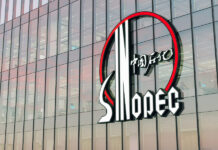On 14 December 2013, the State Council issued the Decision on Issues Relevant to the National Equities Exchange and Quotations [NEEQ], officially expanding the NEEQ’s so-called New Third Board to the entire country and essentially completing China’s multi-level capital market system. Further improvement of the various systems of the New Third Board will solidify its position in China’s market and allow it to function as the “pyramid base” in a multi-level capital market.

姚正旺
Yao Zhengwang
中伦文德律师事务所
合伙人
Partner
Zhonglun W&D Law Firm
Turning to market principles
Pursuant to the 14 sets of business regulations issued on 8 February 2013, and amended on 30 December the same year, the features of the turn to market principles of the New Third Board after its expansion nationwide are manifest in the following ways:
In terms of listing, the New Third Board does not set a financial threshold while setting five basic access conditions. Enterprises that apply to list are not restricted by region, park, or whether they are wholly Chinese-invested or foreign-invested.
In terms of equity financing, if the post-offering number of shareholders is less than 200, the NEEQ implements only a post-offer recordal review, with recordal times currently not exceeding 15 days.
In terms of offering mechanism, mandatory sale restriction requirements and offering interval requirements are not imposed on the offered stocks. Pricing, or the pricing principles, are determined by the listed company’s board or shareholders’ general meeting at its own discretion. Cash or other, non-monetary assets may be used to subscribe.
In terms of trading mechanism, the new rules for the New Third Board specify that three methods of transfer – namely market-making, by agreement and bidding – will be implemented simultaneously, with qualified listed companies free to choose among them based on their own requirements. The three methods are incompatible, but if an enterprise’s needs change, it can make a change in accordance with regulations.
Greater variety of products
Targeted additional offering. The Operational Guidelines for Stock Listings (for Trial Implementation) were implemented on 22 August 2013. The guidelines specify that in a targeted additional offering, up to 35 new shareholders are permitted. The guidelines established a small financing exemption system and a shelf offering system where a single approval is required for multiple future offerings. On 9 August 2013, Beijing Blue Sky Red Environmental Protect Technology became the first enterprise to list on the NEEQ and simultaneously complete a targeted additional offering and an offering of small and medium enterprise private placement bonds.
Issuance of preferred shares. On 30 November 2013, the State Council issued the Guiding Opinions of the State Council on Launching a Preferred Share Pilot Project, announcing the launching of a preferred share pilot project. The opinions expressly state that issuers that make a public offering of preferred shares are limited to listed companies specified by the China Securities Regulatory Commission, and issuers that make a private placement of preferred shares are limited to listed companies and unlisted public companies. For China’s capital market, the offering of preferred shares has an important practical significance. Preferred shares may serve as a form of payment in an acquisition or restructuring, and can increase an enterprise’s equity capital. While increasing the company’s equity financing, preferred shares do not have a major impact on the share price, and while enhancing the enterprise’s financial leverage, preferred shares can also expand its debt financing space, thus being highly relevant for small and medium-sized enterprises seeking financing.
Private placement bonds and convertible bonds, equity pledges and intellectual property pledges. In addition to targeted offerings and preferred shares, debt financing is another important means for companies listed on the New Third Board to resolve financing problems. In future, listed companies will be able to opt for one or a combination of several financing instruments, including targeted offerings, preferred shares, private placement bonds, convertible bonds, equity or intellectual property pledge buybacks, etc., based on their stage of development and financial structure, to provide the funding support required for rapid growth.
Strategic co-operation between the New Third Board and financial institutions. On 20 December 2013, the New Third Board executed an agreement with seven banks – Industrial and Commercial Bank of China, Agricultural Bank of China, Bank of China, China Construction Bank, Bank of Communications, China Everbright Bank and Industrial Bank Co – establishing a strategic co-operative partnership. This signifies that the New Third Board has made important progress in terms of promoting the establishment of a comprehensive financial service platform, which will further enhance its standard and abilities to serve small and medium-sized enterprises, and even micro enterprises.
Channel for New Third Board enterprises to move to the floor trading market. The above-mentioned Decision on Issues Relevant to the NEEQ signalled that the expansion plan long awaited by the market had landed. One of the provisions in the decision that received the most attention states that a company listed on the New Third Board that satisfies the conditions for the listing of its stock can apply directly to a stock market for listing and trading. The New Third Board’s mechanism for transferring to another board has been the focus of wide attention, and with a regulation issued by the State Council, the wall between the stock exchanges and the equity transfer market will progressively come down.
Historical position
A pyramid-shaped capital market is a relatively normal multi-level structure for a capital market, whereas at the moment the capital market in China, in terms of stratification, takes the form of an upside down pyramid, with the development of the over the counter (OTC) market and bond market lagging that of the floor trading market. Now it is necessary to right the inverted pyramid through vigorous development of OTC trading.
The New Third Board will become the “pyramid base” for China’s multi-level capital market, and is China’s capital market reserve army and preparatory course class. The improvement of the New Third Board’s systems will further promote the development of China’s multi-level capital market, promote compliant management at listed companies, and funnel an endless source of qualified enterprises to the floor trading market, causing it to truly become an “elite school” for fostering floor trading market enterprises.
北京市朝阳区西坝河南路1号
金泰大厦19层
邮编:100028
19/F, Golden Tower
1 Xibahe South Road, Chaoyang District
Beijing, 100028, China
电话 Tel:+86 10 6440 2232
传真 Fax:+86 10 6440 2915/2925
电子邮箱 E-mail:
yaozhengwang@zlwd.com
www.zhonglunwende.com






















